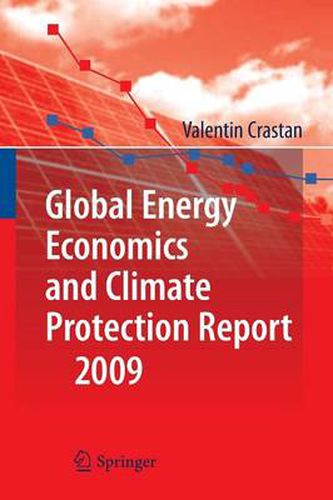Readings Newsletter
Become a Readings Member to make your shopping experience even easier.
Sign in or sign up for free!
You’re not far away from qualifying for FREE standard shipping within Australia
You’ve qualified for FREE standard shipping within Australia
The cart is loading…






This title is printed to order. This book may have been self-published. If so, we cannot guarantee the quality of the content. In the main most books will have gone through the editing process however some may not. We therefore suggest that you be aware of this before ordering this book. If in doubt check either the author or publisher’s details as we are unable to accept any returns unless they are faulty. Please contact us if you have any questions.
At the end of 2009 the World Bank and the IMF published new figures for gross domestic product adjusted for purchasing power. In addition to the new assessment of various developing and emerging nations, the considerable downgrading of the mean purchasing power of China and India is of particular significance. The present English edition of the book takes this into account. Con- quently it is not simply a translation of the German edition, but is also an update, in both the introduction and the main report. Biel, January 2010 Valentin Crastan Preface to the German edition Climate change is becoming more and more evident to everybody and there is an urgent need for action. The resonance resulting from the forthcoming conference in Copenhagen can be taken as a sign that even international po- tics is taking the subject seriously. The need for a worldwide reduction of CO emissions is only sporadically doubted. The required extent of this re- 2 duction is also largely clear. However, there is continuing argument over how much contribution to this should be made by the individual countries and regions of the world. The following report is an attempt to provide a basis for rational discussion, with an analysis of the worldwide energy economy and the associated em- sions. Measurable indicators based on the two main aspects, namely energy efficiency and CO intensity, should enable the efforts to be judged equitably.
$9.00 standard shipping within Australia
FREE standard shipping within Australia for orders over $100.00
Express & International shipping calculated at checkout
This title is printed to order. This book may have been self-published. If so, we cannot guarantee the quality of the content. In the main most books will have gone through the editing process however some may not. We therefore suggest that you be aware of this before ordering this book. If in doubt check either the author or publisher’s details as we are unable to accept any returns unless they are faulty. Please contact us if you have any questions.
At the end of 2009 the World Bank and the IMF published new figures for gross domestic product adjusted for purchasing power. In addition to the new assessment of various developing and emerging nations, the considerable downgrading of the mean purchasing power of China and India is of particular significance. The present English edition of the book takes this into account. Con- quently it is not simply a translation of the German edition, but is also an update, in both the introduction and the main report. Biel, January 2010 Valentin Crastan Preface to the German edition Climate change is becoming more and more evident to everybody and there is an urgent need for action. The resonance resulting from the forthcoming conference in Copenhagen can be taken as a sign that even international po- tics is taking the subject seriously. The need for a worldwide reduction of CO emissions is only sporadically doubted. The required extent of this re- 2 duction is also largely clear. However, there is continuing argument over how much contribution to this should be made by the individual countries and regions of the world. The following report is an attempt to provide a basis for rational discussion, with an analysis of the worldwide energy economy and the associated em- sions. Measurable indicators based on the two main aspects, namely energy efficiency and CO intensity, should enable the efforts to be judged equitably.